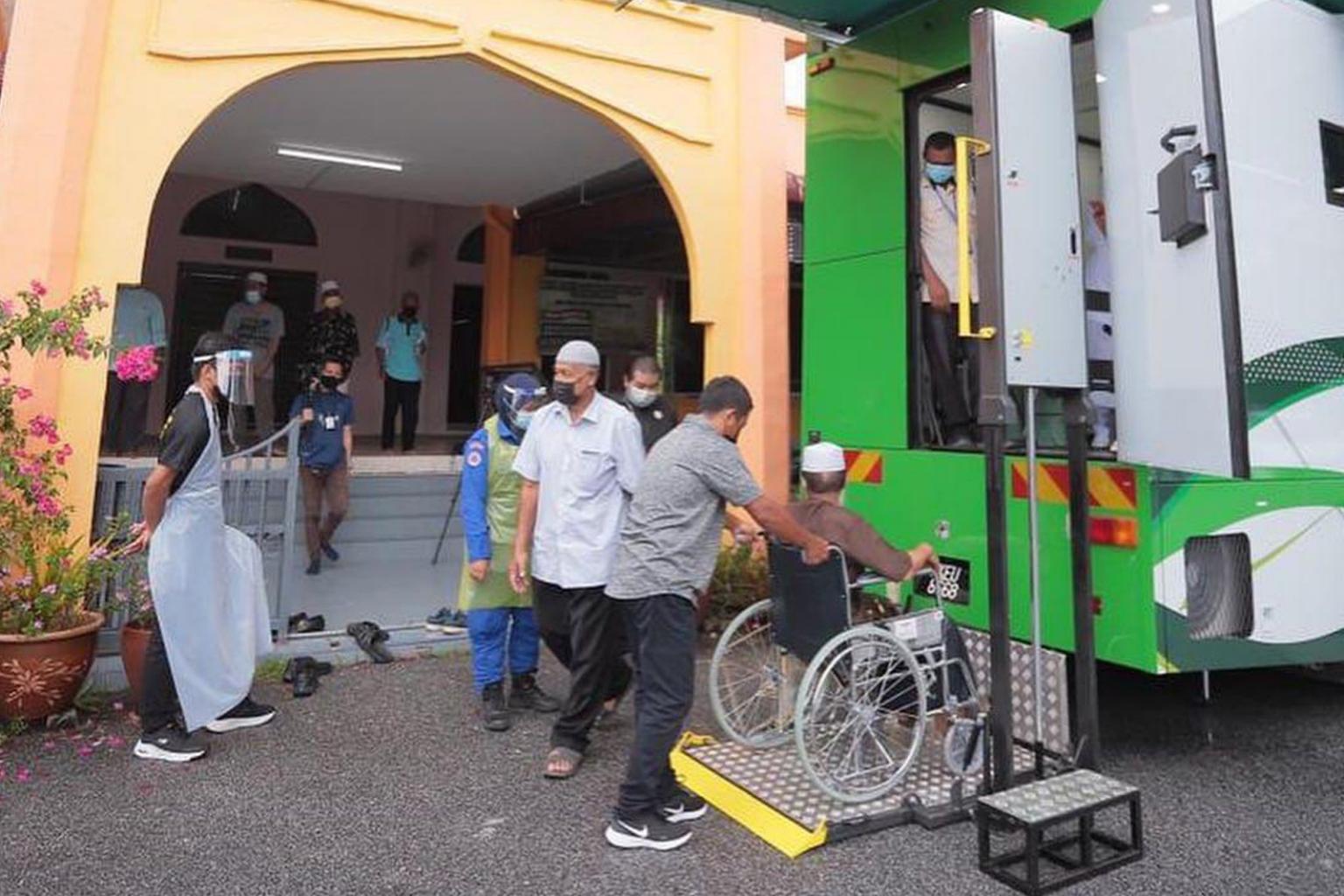Mobile clinics take Covid-19 vaccines to rural Malaysia
Sign up now: Get insights on the biggest stories in Malaysia

The mobile clinic is on target to inoculate nearly 1,000 settlers in the span of five days, at the rate of 200 vaccinations a day.
PHOTO: SPECIAL COMMITTEE FOR COVID-19 VACCINE SUPPLY
KUALA LUMPUR - The health authorities have started deploying mobile vaccination centres to rural areas to ensure vaccine access to millions of the rural population as Malaysia enters a crucial phase in its bid to attain herd immunity this year.
From this month, the mobile centres - in the form of repurposed trucks - will be deployed in nine states, where the local health authorities are empowered to take "whatever approach necessary" to get people to go for vaccination.
The first mobile vaccination clinic, in Negri Sembilan, some 60km south of Kuala Lumpur, started operating this week.
The vehicle - a repurposed truck borrowed from the Kuala Pilah district dental clinic - is the initiative of the district's health officer, Dr Noraliza Radzali.
"The idea is to cater to people who live beyond a 25km distance from the nearest vaccination centre. These places are in the interior and there is no access to public transport," Dr Noraliza told The Straits Times.
The mobile clinic's target this week is a Federal Land Development Authority (Felda) settlement called Kepis, and it is on target to inoculate nearly 1,000 settlers over five days, at the rate of 200 vaccinations a day.
For the mobile vaccination exercise, Dr Noraliza said the health authorities work with local community leaders instead of the government's voluntary registration system.
"We get a list from the manager at Felda Kepis. We go by that list - based on who is high risk, and also those who are 18 years and above," she said.
Dr Noraliza said the authorities provide the vaccine to those who want to take it regardless of whether they have registered under the National Immunisation Programme.
Malaysia is currently inoculating millions of people who have registered either with the contact tracing app MySejahtera, the vaccine access committee's website or their respective health clinics or offices.
National coordinating minister for immunisation Khairy Jamaluddin said on Thursday (June 17) that he is not concerned about low registration rates in some of the least-developed states as the vaccination strategy would be different for those living in the country's interiors.
"Our strategy is to conduct mobile outreach. We will go in and give jabs," he said.
Malaysia's poorest state of Sabah has seen only 27 per cent of its targeted adult population registering for vaccination. Kelantan, the second-poorest state, has a registration rate of 45.4 per cent.
About seven million - or 23 per cent of Malaysia's population - live in rural areas, according to the World Bank's 2019 data. The country aims to inoculate its entire adult population by the end of the year.
Epidemiologist Malina Osman told ST that the mobile vaccination units could plug the gap between urban and rural vaccine access in Malaysia.
She added that the arrival of single-dose vaccines could further accelerate the process. Malaysia earlier this week approved the emergency use of Cansino and Johnson and Johnson's single-dose vaccines.
Dr Malina said a bottom-up approach is important to ensure that such initiatives succeed, with the local authorities being able to use available resources. "The bottom-up approach is actually the core of public health work in remote/rural areas," she added.
As at Thursday, 3.8 million Malaysians, or 11.7 per cent of the population, have received at least one dose of the vaccine, while 1.5 million have been fully vaccinated.
The country also recorded its highest-ever single-day vaccination rate to date on Thursday, with 221,706 doses given.
As at Wednesday, 62.5 per cent of Malaysia's adult population had registered for the vaccination.


